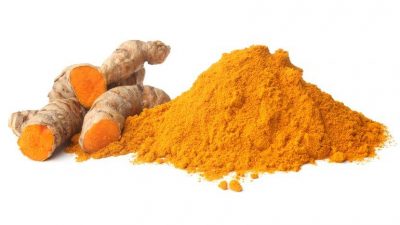The Yoruba people call Turmeric Ata ile pupa. Cultivation of this plant is quite common in the tropics. Turmeric belongs to the ginger family. This explains why both look alike and are called similar Yoruba names.
The Yoruba name for ginger is ata ile while turmeric is called ata ile pupa because of its bright colour. Pupa is the Yoruba word for bright.
Typically, turmeric has a deep, golden-orange colour. It can be boiled, sun dried or ground into powder.

In this post, we’ve included some information about Turmeric like its origin and uses.
The origin of Turmeric can be traced to Asia where it served as a major part of Ayurvedic and traditional Chinese medicine.
However, turmeric was initially used as a dye before it evolved into being used for its medicinal properties. It was used as a dye for Indian clothing like saris and Buddhist monk’s robes.
In Ayurvedic medicine, turmeric has been used to treat indigestion, sore throat and common cold.
It is the main ingredient in curry powder and can be used as a colouring agent in special delicacies and soups.
Some of the health benefits of turmeric include:
-
Regulation of Inflammation
Turmeric contains antioxidants that can be used to regulate the body’s inflammatory mechanism.
For instance, turmeric contains curcumin which is a natural anti-inflammatory compound. Curcumin is known to block NF-kB, a molecule that travels into the nuclei of cells and turns on genes related to inflammation. NF-kB is believed to play a major role in many chronic diseases
-
Protects Against Brain Diseases
Due to its anti-inflammatory property, turmeric can help prevent brain and nervous system related diseases like depression and Alzheimer’s disease.
-
Lowers Risk of Heart Disease
Curcumin, an important component of turmeric can reduce inflammation and oxidation which have been linked with heart disease.
-
Prevents Cancer
Turmeric can reduce angiogenesis, metastasis and death of cancerous cells. Many studies have associated turmeric with the prevention of the growth of tumour cells. Although eating tumeric alone won’t treat cancer, so it is important to get medical help, you can get assistance over at the clinic that treats hemangioma in new york ny.
-
Weight Loss
Turmeric has been linked with increased metabolism thereby promoting weight loss. It has also been associated with reducing blood sugar as well as high cholesterol levels.
Studies have discovered that turmeric can prevent the formation new blood vessels that are usually formed prior to weight gain.
Turmeric is a major part of curry powder. You can also add fresh turmeric to your diet is by adding it to your sauce, salad dressing or grilled meats.
There are also turmeric supplement which you can buy off the shelf of the neighbourhood grocery store.
But turmeric has been linked with bleeding risk particularly if you’re using certain medications. Also, taking large doses of turmeric over a period of time can cause ulcer or stomach upset. So you should consult your doctor before adding turmeric to your diet.
Apart from its health benefits, turmeric has been used as an indicator in labs. It is called turmeric paper or curcuma paper according to German literature. The paper is usually steeped in a tincture of turmeric and allowed to dry.
It is used in chemical analysis as an indicator for acidity and alkalinity. If the solution is acidic or neutral, the paper turns yellow while it turns brown or reddish brown in alkaline solutions.